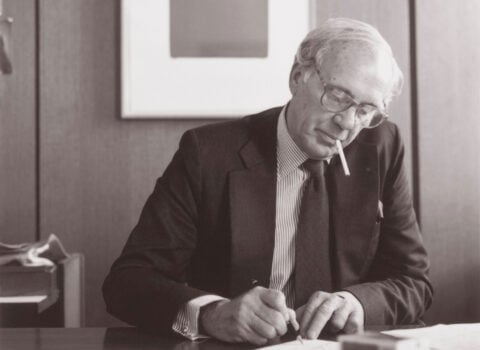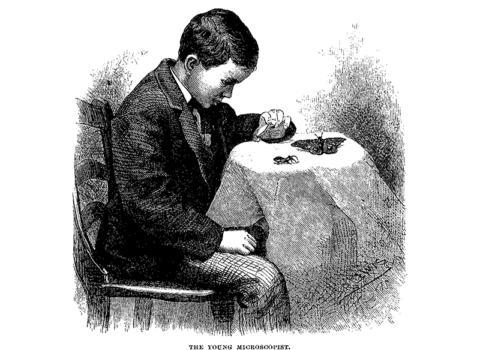In an article that appeared in Le Monde on April 18, two days before the terrorist attack on the Champs-Élysées and five days before the first round of the presidential election in France, the left-wing philosopher Alain Badiou made an appropriate comment on the “electoral ritual” and the effect of terrorism: “Fear is a bad advisor.” Exactly. Fear has a tendency to conjure up imaginary bad guys, who can lead even the most reasonable citizens to make bad choices.
On the other hand, can a movie with bad characters, even though they’re made-up, offer good advice at election time? Given the widespread cynicism regarding the second round, which presents a bad choice – either the authoritarian extreme right of Marine Le Pen or the neoliberalism of Emmanuel Macron – would it be so farfetched to look for truth in fiction rather than to face political reality?
I’m thinking about the 1961 film The President, directed by Henri Verneuil and adapted from a novel by Georges Simenon. I was until recently unaware of the existence of this film, but having been invited by the Alliance Française of New York to introduce it as part of a series about French politics – “Liberté, Égalité, Fantaisie” – I am now convinced that the best candidate in the second round would be, without a doubt, Simenon’s fictional President of the Council, Émile Beaufort, played in the film by the great Jean Gabin. I also think that the movie’s brilliant screenwriter, the late Michel Audiard, would be an effective speechwriter for the two real candidates.
The film deals with the career of a man for whom politics has been a profession – these days, it’s a vocation held in great contempt – and focuses particularly on his rivalry with a sophisticated opportunist by the name of Philippe Chalamont, played by Bernard Blier. Of course, ambition and raw greed play large parts, and so does personal score-settling. As popular entertainment, the film is exciting, and it ends with a nice surprise, but what’s most important is how pertinent its political material remains, despite a distance of fifty-six years, to the issues of Europe and French sovereignty in the current debate between the two run-off candidates.
As the film begins, Émile Beaufort is living in retirement on his property in Normandy, describing himself to a visitor as “a mixture of anarchist and conservative, in proportions yet to be determined.” But in the final analysis, he’s not so anarchist as all that, for in the scenes that take place in the past, a younger Beaufort is shown advocating for a federated Europe. His former cabinet secretary, Chalamont, is also officially pro-Europe, but his lack of sincerity is obvious. At a debate in the National Assembly on legislation that would enroll France in a “customs union” in preparation for the eventual creation of a “United States” of Europe, Chalamont, who is of the opposition party, talks like a Le Pen-style demagogue. “It was not for a Europe without borders that 1,500,000 Frenchmen fell, and they among the best,” he thunders from the rostrum. He scorns the “obsolete pacifist dreams of Geneva and Locarno,” whatever the “fine sentiments” of the government led by Beaufort might be. Beaufort, for his part, scorns Chalamont’s pretensions: “At the time of Verdun, Monsieur Chalamont was ten years old.… Having been present in the theater of operations, I cannot pretend to the same objectivity.” And the nail in the coffin: “Whenever some mischief is afoot, there’s always a republic that must be saved.”
Nevertheless, Beaufort shouldn’t be seen as a Macron-like liberal globalist, no more than Chalamont should be seen as a Le Pen nationalist ideologue. The core of the conflict is the dispute between a man of principle, faithful to the ideal of an upright, independent France, and a wheeler-dealer who’s always looking to make a profit from politics – “More ambitious for yourself than for your country,” as Beaufort derides him. The origin of their clash lies in a devaluation of the franc organized in secret by Beaufort precisely to prevent speculators from exploiting the information. Chalamont nevertheless informs his banker father-in-law of the planned devaluation, and now Beaufort will have his revenge.
A fine cinematic plot. But Beaufort’s justification for the devaluation is just as striking: “We had to choose, and choose fast, between the protection of capital and the protection of labor.…I’m well aware that this devaluation will reduce by a third the income of ordinary middle-class people, but I deem it to be in the national interest.” An idea of genius, that old national interest. Today, without a national currency and facing an economically dominant Germany, the French government no longer has the choice of boosting exports with a similar monetary policy. So as a supporter of Europe without the euro, I see a way out of my electoral dilemma. Instead of abstaining on May 7, as Alain Badiou recommends, I’ll cast my vote for Émile Beaufort.




